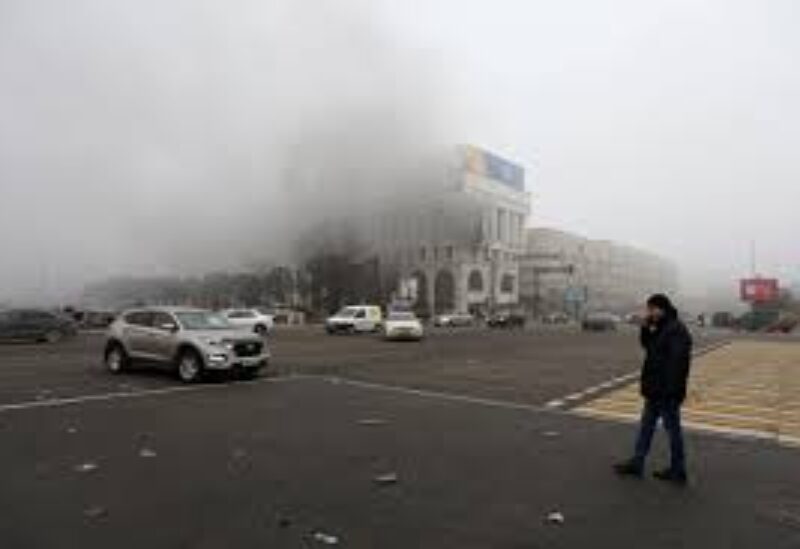
On Friday morning, security forces looked to be in control of the streets of Almaty, Kazakhstan’s capital, and the president said that constitutional order had been mainly restored, a day after Russia dispatched soldiers to quell a nationwide rebellion.
Fresh gunfire could be heard in the city’s center plaza in the morning, where military and protestors had fought for much of the previous day.
In the worst unrest in the Central Asian state’s 30 years of independence, dozens of people have been murdered in street fights, and demonstrators have set fire to and trashed official buildings in many towns.
Demonstrations that began as a response to a fuel price hike have swelled into a broad movement against the government and ex-leader Nursultan Nazarbayev, 81, the longest-serving ruler of any former Soviet state.
He stepped down as president three years ago but his family is widely believed to have retained power.
Nazarbayev’s hand-picked successor, President Kassym-Jomart Tokayev, called in Russian paratroopers on Thursday as part of a force from former Soviet states to help put down the uprising, which he has described as a revolt by foreign-trained militants.
“An anti-terrorist operation has been launched. The forces of law and order are working hard. Constitutional order has largely been restored in all regions of the country,” Tokayev said in a statement.
“Local authorities are in control of the situation. But terrorists are still using weapons and damaging the property of citizens. Therefore, counter-terrorist actions should be continued until the militants are completely eliminated.”
TROOPS IN ALMATY
The interior ministry said 26 “armed criminals” had been “liquidated” and more than 3,000 detained, while 18 police and national guard servicemembers had been killed since the start of the protests.
On Friday morning, Reuters correspondents saw armored personal carriers and troops in the main square of Almaty.
A few hundred meters away, a dead body lay in a heavily damaged civilian car. In another part of the city, an ammunition shop had been ransacked. Military vehicles and about 100 people in military uniforms had also taken positions at another square in Almaty.
Widespread unrest has been reported in a number of other cities across the vast country of 19 million people. The internet has been shut off since Wednesday, making it difficult to determine the full extent of the violence.
The Russian-led Collective Security Treaty Organization said its peacekeeping force from former Soviet states would number about 2,500 and would stay in Kazakhstan for a few days or weeks.
Tokayev’s administration said the force was still arriving and had not been engaged in combat or the “elimination of militants”.
The violence has been unprecedented in a country ruled firmly for decades by Nazarbayev, who was the last Soviet-era Communist Party boss still in powerin an ex-Soviet state when he passed the presidency on to Tokayev in 2019.
Nazarbayev has not been seen or heard from since the protests began. Tokayev has sought to distance himself from his predecessor, removing Nazarbayev and his nephew from security posts since the protests began.
Tokayev’s administration said the identity of the detained militants was being established, and the possibility of them belonging to an extremist organisation being investigated.
The president will address the nation on Friday, his administration said, asking people in Almaty to limit their travelling around the city while the “search for the remaining hiding bandits is under way.”
Kazakhstan is a major oil producer and the world’s top producer of uranium.
Oil output at its top field, Tengiz, was reduced on Thursday, the field’s operator Chevron said, as some contractors disrupted train lines in support of the protests. Global oil prices have risen and the price of uranium has jumped sharply since the clashes began.
The country also accounts for close to a fifth of global bitcoin “mining”, the electricity-intensive process of recording cryptocurrency transactions, and since the internet was shut down, computing power of bitcoin’s global network has fallen.